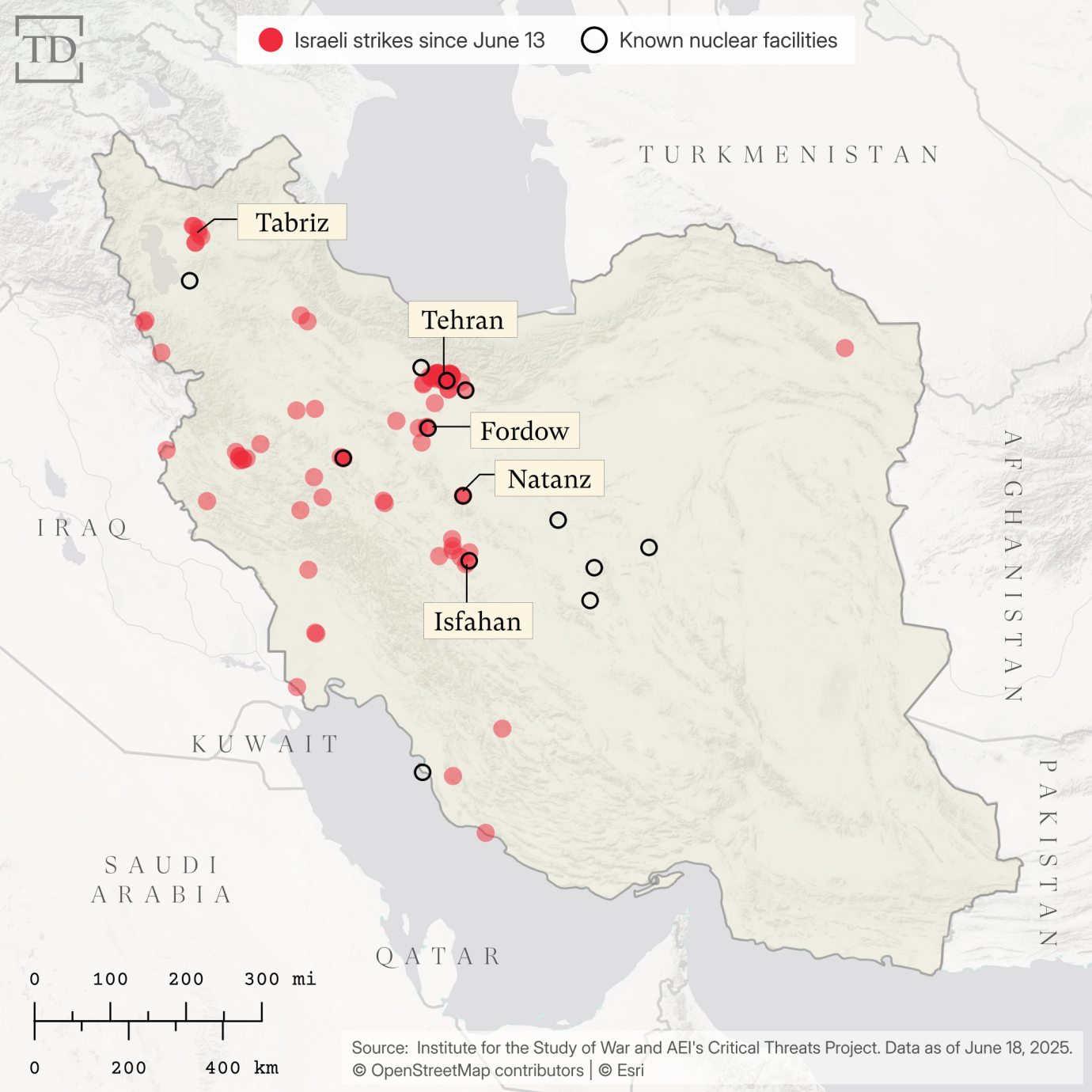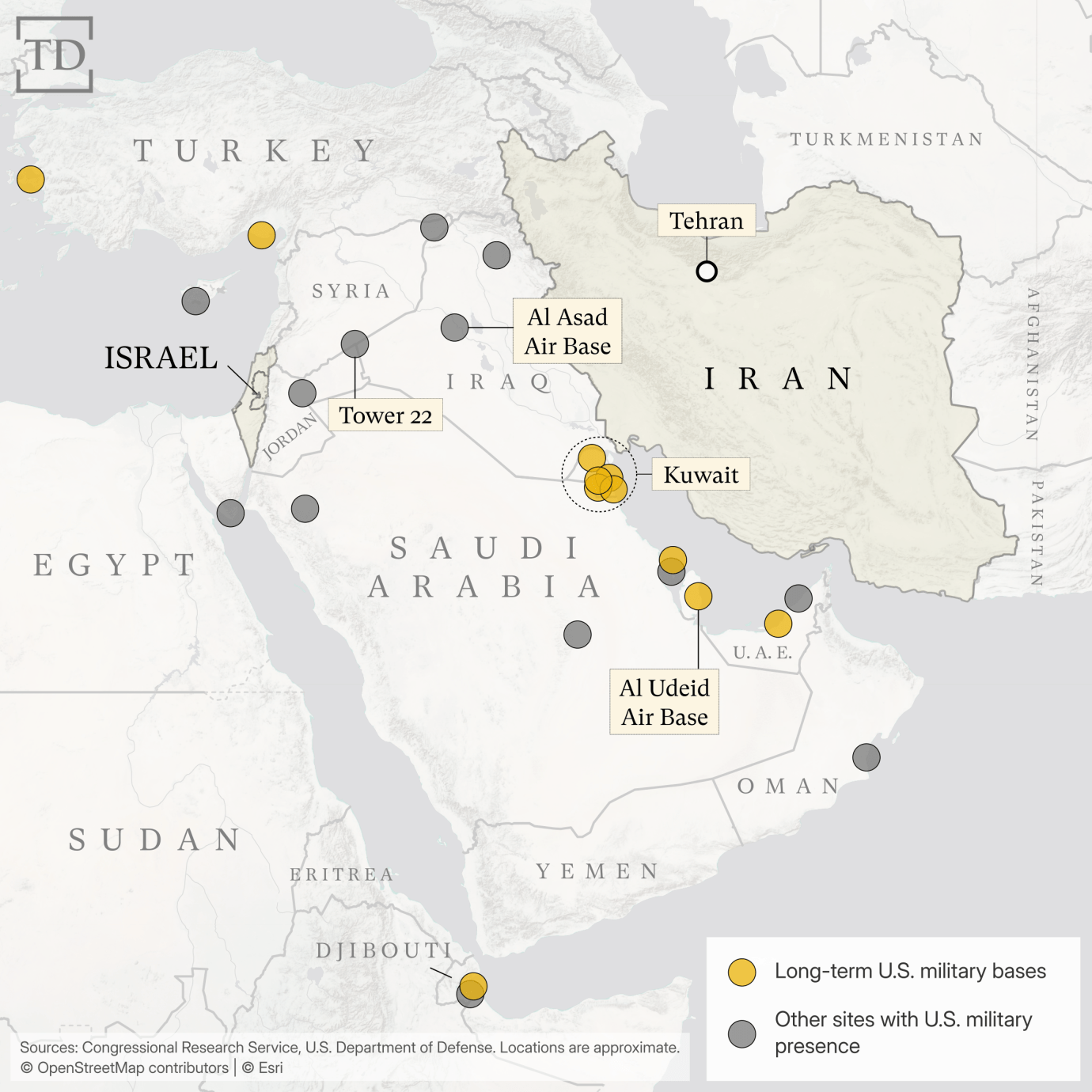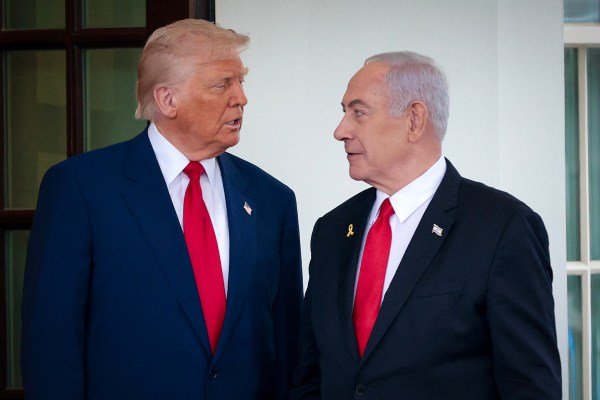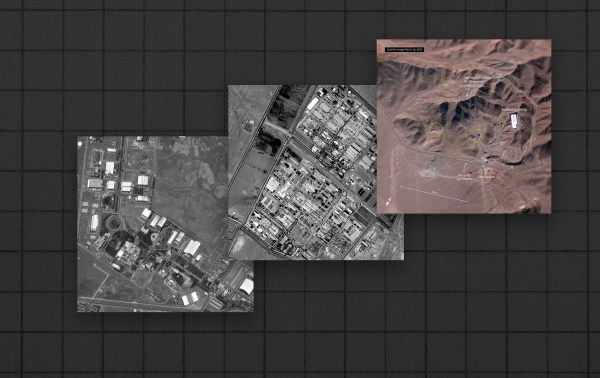You’re reading the free version of The Morning Dispatch. Consider joining as a paid member to get full access to our news, analysis, community comments, and live events.
Happy Friday! Today marks the 50th anniversary of the release of Jaws, an all-time Hollywood blockbuster and an enduring reminder that East Coast beaches are best left alone. (We’ll leave it to you to guess which California-raised TMDer wrote that.)
Quick Hits: Today’s Top Stories
- Israel and Iran continued to exchange attacks on Thursday and into Friday. Early Thursday morning, Iran launched a barrage of 30 ballistic missiles toward Israel, hitting a major hospital in Be’er Sheva directly. The Islamic Republic also fired a salvo at central Israel, inflicting heavy damage on a residential building in Ramat Gan. Meanwhile, Jerusalem’s strikes against Iran’s military, nuclear, and regime infrastructure continued as Israeli Defense Minister Israel Katz threatened to target Iranian Supreme Leader Ali Khamenei. The military “has been instructed and knows that in order to achieve all of its goals, this man absolutely should not continue to exist.” The threat follows President Donald Trump’s reported decision to veto an Israeli plan to kill the Iranian leader in recent days.
- Trump will decide whether the U.S. will join Israel’s ongoing military campaign against Iran “within two weeks,” White House press secretary Karoline Leavitt told reporters Thursday. “Based on the fact that there’s a substantial chance of negotiations that may or may not take place with Iran in the near future, I will make my decision whether or not to go within the next two weeks,” Leavitt said, reading a statement from the president. Meanwhile, Iranian officials have communicated directly with U.S. special envoy to the Middle East Steve Witkoff this week, Reuters reported Thursday. According to unnamed officials, Iranian Foreign Minister Abbas Araghchi conveyed that Tehran would not come to the table for negotiations unless Israeli attacks cease.
- The State Department announced Wednesday that it would resume processing applications for student visas, which it had suspended in May. Applicants will now be required to set their social media accounts to “public” to allow for their review by U.S. officials, as the Trump administration seeks to prevent students it views as hostile to American values from studying in the United States. Hundreds of student visas have already been canceled by the State Department this year due to their holders’ foreign policy views or criminal backgrounds.
- Trump on Thursday signed an executive order giving TikTok’s Chinese-owned parent company, ByteDance, another 90 days to either divest ownership of the app or face a ban. The extension is the third such reprieve the president has offered the company, which has been accused of algorithm manipulation and granting the Chinese government access to user data. A law mandating that TikTok be sold to an American buyer to continue operating in the United States passed Congress with bipartisan support last year. The legislation was originally set to take effect in January.
- Nippon Steel of Japan finalized its acquisition of U.S. Steel on Wednesday, completing a politically fraught process that took more than a year to conclude. Former President Joe Biden blocked the merger in 2024, citing national security concerns and under pressure from U.S. steelworkers’ unions. Trump then allowed the deal to go through, under terms that give the federal government authority over U.S. Steel’s board and grant it veto power over actions including changing the company’s name, moving jobs abroad, and future acquisitions. Nippon Steel has also promised to invest $11 billion in U.S. Steel facilities through 2028.
- SpaceX’s Starship rocket—the aerospace company’s largest spacecraft—exploded on its launch pad late Wednesday night, shortly before its 10th test flight. In a post on X, SpaceX attributed the incident to a “major anomaly” and confirmed that its personnel were safe and accounted for. The explosion is the latest in a string of failed tests this year for the 400-foot-tall Starship, which is key to both NASA’s plan to return astronauts to the moon and SpaceX founder Elon Musk’s efforts to send an unmanned spacecraft to Mars as soon as 2026.
Understand the Decisions Shaping Our Nation

A Week of War

As Israeli public opinion splits sharply on the ongoing war against Hamas in Gaza, the divided country is finding a new common cause in combating the Iranian nuclear threat. Support for the conflict is evident both in national opinion polls and in the country’s bomb shelters, where ongoing Iranian missile attacks have forced some Israelis to spend their nights among neighbors underground.
“There’s a lot of joking around in the shelter, even at four in the morning. There’s a lot of that typical Israeli gallows humor,” Oren Kessler, a Tel Aviv-based analyst and author, told TMD. “I think the mood in the country, or at least the mood here in Tel Aviv, is confident. The vast majority of Jewish Israelis are on board with this war, and that’s despite the profound unpopularity of Benjamin Netanyahu. And that’s despite the profound risks entailed in this war.”
One week after Israel began its strikes on Iran’s nuclear program, the two sides continue to trade daily and devastating attacks. While Jerusalem’s military campaign has largely centered on Iranian military, nuclear, and regime targets, Tehran’s missile salvos have resulted in significant damage to cities and towns across Israel. Meanwhile, the future U.S. military role remains unclear, as President Donald Trump oscillates between diplomatic outreach and demands for an “unconditional surrender” from the Islamic Republic.
Across Israel, daily ballistic missile barrages aimed at population centers have killed at least 24 civilians. In the central city of Ramat Gan, a direct missile hit a residential building and wounded at least 39 people early Thursday morning. In the Negev city of Be’er Sheva, another missile struck the Soroka Medical Center, southern Israel’s main hospital, destroying several wards and injuring 71 people. But the human toll could’ve been much worse: According to hospital administrators, patients in the part of the building that sustained the most damage had been evacuated to an underground facility just hours before the attack.
The missiles have posed a major challenge to Israel’s layered air defenses, particularly when fired off in large volleys. But the damage is still significantly less severe than many officials feared it would be before the war’s start. Ahead of Jerusalem’s initial strikes last week, the military told the Israeli Cabinet to expect as many as 4,000 civilian deaths from Iran’s opening salvo. Preemptive attacks on Iranian missile sites have thus far allowed Israel to sidestep this worst-case scenario—the Israel Defense Forces (IDF) estimates that its air campaign has hit roughly two-thirds of Iran’s launchers—but the threat of mass casualty events remains.
And indeed, as it undertakes an operation to set back the Iranian nuclear program, Israel increasingly views Tehran’s ballistic missile production as yet another existential threat. A recent Israeli intelligence assessment found that, prior to the war’s start, the Islamic Republic had developed a plan to produce 8,000 missiles capable of reaching Israel by next year and 20,000 within two years. The goal: overwhelming Israeli air defenses and maximizing civilian death.
Speaking from the heavily damaged Soroka Medical Center on Thursday, Israeli Prime Minister Benjamin Netanyahu rejected Tehran’s claims that its attack had targeted a military site. “Israel is fighting to remove the nuclear and missile threat aimed at our annihilation. We’re targeting military sites, we’re targeting nuclear sites, we’re targeting missile sites. They’re targeting a hospital,” he told reporters. “They’re targeting civilians because they’re a criminal regime.”
Meanwhile, Israeli strikes against Iranian nuclear facilities—including Natanz and Isfahan—continued throughout the week. But one location in particular poses a unique challenge to military planners: Fordow. The uranium enrichment plant was built deep beneath into the side of a mountain, going down as far as 295 feet. The natural shield is believed to make Fordow impenetrable to any aerial bombs in Jerusalem’s arsenal—but not the U.S. arsenal. The U.S. currently has “bunker buster” munitions—and the strategic bombers necessary to deliver them—within flying distance of Iran.

But the prospect of U.S. participation in Israel’s military campaign remains up in the air. According to a report by the Wall Street Journal, Trump informed aides on Tuesday that he had approved attack plans but wanted to hold off to give Tehran the opportunity to voluntarily dismantle its nuclear program. And White House press secretary Karoline Leavitt told reporters Thursday that Trump will decide whether to join the offensive operations within two weeks, given “substantial chance of negotiations that may or may not take place in the near future.”
Against the uncertain backdrop, the U.S. has begun moving additional military hardware to the region. This week, the U.S. Navy announced plans to move two additional aircraft carriers—the USS Gerald R. Ford and the USS Nimitz—to the area. In addition to threatening to block the Strait of Hormuz, the Islamic Republic has vowed to retaliate against U.S. military personnel and assets in the Middle East should Trump join the war. More than 40,000 American troops and civilian employees of the Pentagon are currently deployed to countries across the region, including Bahrain, Kuwait, and Jordan. And many have already found themselves in Tehran’s crosshairs. Last week, Iranian-backed militias fired drones at U.S. forces stationed at the Al Asad Air Base in western Iraq.

But there’s concern that the U.S. fear of escalation could allow the Iranian regime to pull Washington into another round of fruitless nuclear negotiations. Iran is “trying to string the U.S. along, using the lure of ‘substantial negotiations’ in the hopes of delaying a strike, polarizing U.S. decision-making, creating fissures between the U.S. and [Israel], and fracturing international support,” Jason Brodsky, the policy director at United Against Nuclear Iran, tweeted on Thursday.
Addressing reporters on Thursday, Netanyahu insisted that Israel is up to the task of eliminating the Iranian nuclear threat—with or without U.S. participation. “We will achieve all our objectives and hit all of their nuclear facilities. We have the capability to do that,” he said, adding of Trump: “He will do what is good for the United States and I will do what is good for the State of Israel and I must say that up to this moment everyone is doing their part.” Jerusalem’s plans for Fordow are unclear, but if the last year has taught analysts anything, it’s not to discount Israel’s ingenuity when it comes to addressing an overwhelming threat.
“Across the Israeli political spectrum, there’s a recognition that decades of nuclear diplomacy have not borne fruit, that Iran is determined to have nuclear weapons, and that Iran is determined to try to destroy this country. It’s made that very, very clear countless times, not just in terms of its rhetoric but in terms of its actions,” Kessler said. “This is really a decades-long reckoning.”
Today’s Must-Read

The Options Market
Toeing the Company Line


Why the EU Won’t Yield to Trump’s Trade War

Trump’s Paid Path to Citizenship, Explained

Tulsi Gabbard’s ‘Weird’ Week

The View From Congress
Worth Your Time
Writing for The Free Press, Ido Hevroni—a professor at Israel’s Shalem College who teaches a seminar on the Iliad—reflected on the enduring resonance of Homer’s epic, particularly for a country at war. “We opened the 2023–2024 academic year four months late. Because of the war, more than half our students were drafted for reserve military service, and we wanted to wait for them to return. When we finally started reading the Iliad together, it was different. The students returning from war made clear to me what I had intuitively grasped in Amir’s eulogy: The Iliad is a painfully relevant book,” he wrote. “[One] student, a fighter in an elite unit, approached me after the course ended and told me he had participated in several intensive combat rounds that he never spoke of in the processing sessions that followed. ‘I had no words,’ he said, ‘but in the first processing session we conducted after I finished reading the Iliad, I spoke for the first time. I finally found the words to talk about my experiences.’ My student was well trained for combat but was never trained to recognize what war might do to his soul. He had learned the high moral values of the IDF—such as ‘the purity of arms,’ meaning that soldiers should use their weapons and force only to the necessary extent and must maintain their humanity even during combat. But he learned nothing about the shocking violence required in combat situations. The Iliad gave him a deeper understanding of what human beings are capable of. The Iliad’s ending, with Achilles and Priam mourning together, gave him an opening for hope. Even from these depths, one can return to humanity.”
Presented Without Comment
The Hill: Florida Attorney General Pitches ‘Alligator Alcatraz’ To Hold Migrants
Florida Attorney General James Uthmeier pitched a new facility to hold immigrants in the Everglades called “Alligator Alcatraz.”
Uthmeier said in a video posted Thursday to social platform X that the location “presents an efficient, low cost opportunity to build a temporary detention facility because you don’t need to invest that much in the perimeter. If people get out, there’s not much waiting for them other than alligators and pythons.”
In the Zeitgeist
For the horror fans among us, one of the most highly acclaimed zombie franchises returns to theaters today: Danny Boyle’s 28 Years Later, the third addition to a film series started by 28 Days Later. If you like your undead British and fast as Olympic sprinters, this is the movie for you.
Let Us Know
Do you think U.S. involvement in the Israel-Iran war would hasten its end?











Please note that we at The Dispatch hold ourselves, our work, and our commenters to a higher standard than other places on the internet. We welcome comments that foster genuine debate or discussion—including comments critical of us or our work—but responses that include ad hominem attacks on fellow Dispatch members or are intended to stoke fear and anger may be moderated.
With your membership, you only have the ability to comment on The Morning Dispatch articles. Consider upgrading to join the conversation everywhere.